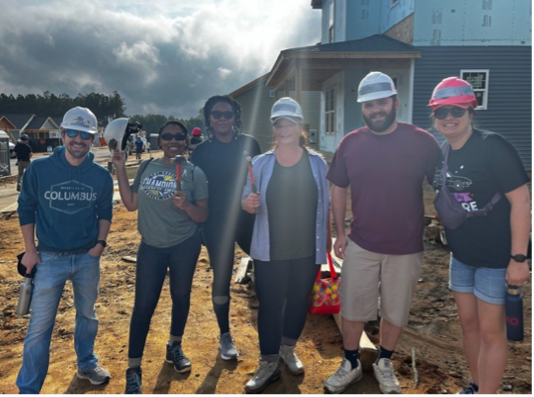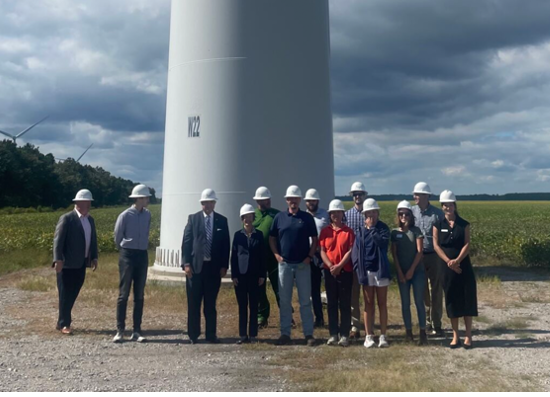By Anna Coley
Anna Coley is a senior at UNC-Chapel Hill majoring in Environmental Sciences. This past summer, Anna interned with the North Carolina Sustainable Energy Association as part of the Institute for the Environment’s Pavel Molchanov Scholars Program.
What is The Pavel Molchanov Scholars Program?
The Pavel Molchanov Scholars Program is a funded internship program through the Institute for the Environment at UNC-Chapel Hill. Through this endowment from Pavel Molchanov, UNC students are awarded a $5,000 stipend to support a summer internship with an environmental or sustainability related business or organization.
The program utilizes a network of small- to mid- sized organizations, including local governments, nonprofit organizations, and small businesses, to bridge the gap between students seeking a paid learning experience and organizations that may lack additional funding for interns. This provides students with an experiential learning experience and allows smaller organizations to take on additional student interns.
Application Process & Placement
I first learned about the Pavel Molchanov scholar program through the ENEC Undergrad Listserv in January of 2023. After talking with one of my peers who had been a part of the program the year prior, and hearing her rave review of her experience, I decided to apply. During the Spring semester of 2023, I was accepted as a Pavel Molchanov Scholar and was soon guided by Dr. Greg Gangi in identifying an organization to work with over the summer that would be most compatible with my interests in the clean energy field. I was put into contact with Matt Abele, who was at the time the Director of Marketing and Communications, at the North Carolina Sustainable Energy Association (NCSEA). After interviewing with Mr. Abele, I was offered a summer intern position at NCSEA working with the Marketing and Communications team.

During this process, I learned more about NCSEA as an organization. They are a nonprofit focused on various clean energy sectors who utilize policy and data as avenues for enacting change towards a more sustainable future. Given their nonprofit-status, NCSEA has little room in their budget for interns, so without funding from the Pavel Molchanov Program I would not have been able to work with them.
NCSEA staff on a tour of Amazon Wind Farm (left) and at a Habitat for Humanity build (right).

The Power of Experiential Learning
As a Marketing and Communications intern, I created content for direct communications, social media, and the NCSEA website. I was able to collaborate with various teams in NCSEA, particularly the Environmental Data Solutions (EDS) team. Throughout the summer, I absorbed a myriad of information on the North Carolina General Assembly and various House and Senate bills that impact the clean energy landscape and energy efficiency issues.


One of my favorite memories from this experience was working with other NCSEA interns on a final presentation to culminate our work throughout the summer. Part of this presentation included a reflection on Shalanda Baker’s Revolutionary Power: An Activist’s Guide to the Energy Transition, which we all read as part of an intern book club. We reflected on our work and discovered surprising connections to our reading. It was incredibly rewarding to present our findings to the NCSEA staff and process the greater impact of our work.

At NCSEA, I engaged with the lobbyists, data analysts, marketing specialists, and the interim Executive Director (Matt Abele). I gained professional writing and communication skills while working on projects, and took ideas I had learned about in the classroom and put them into practice. Experiential learning in a professional setting was incredibly beneficial for me, and I feel it would be a worthy experience for any undergraduate student wanting a taste for the realities of the field in which they aspire to work.
Final Thoughts
Through this internship, I was able to connect with and learn from multiple experienced professionals in the field I aspire to work in after graduation. This experience not only clarified my academic and professional interests, but led me to feel more determined and excited than ever to pursue a career in clean energy. This was an invaluable experience, and I would recommend other Carolina students explore this program and take advantage of what it has to offer.
For more information, visit: https://ie.unc.edu/education/awards-scholarships/molchanov-scholars/.

